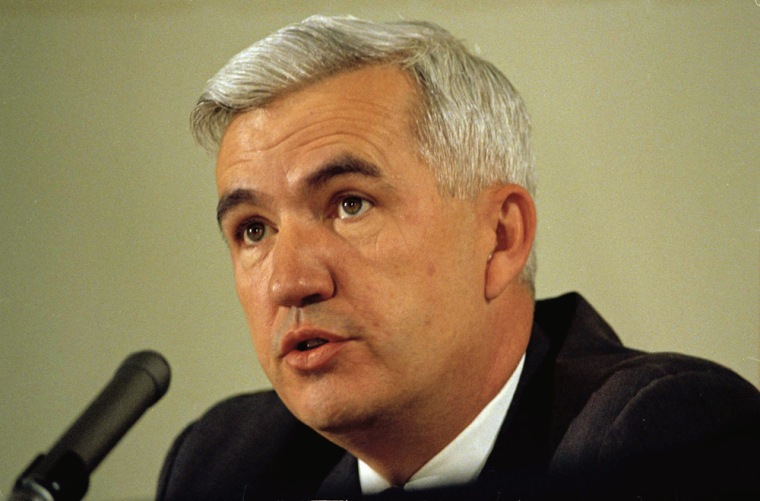William Hungate, a former federal judge and congressman who sponsored one of the articles of impeachment against President Nixon, died Friday, his family said. He was 84.
Hungate had complications from surgery after suffering a blood clot in the brain from an operation June 6, they said.
A Democrat, Hungate represented Missouri’s 9th District from November 1964 to January 1977.
Hungate sponsored the second article of impeachment against Richard Nixon before the House Judiciary Committee during the Watergate proceeding. Approved by the panel July 29, 1974, it said Nixon repeatedly failed to carry out his duty to uphold the law.
That fall, Hungate, as chairman of the Judiciary Committee’s subcommittee on criminal justice, led the investigation of the presidential pardon of Nixon by his successor, President Ford.
The new president appeared and gave sworn testimony before the subcommittee in October 1974, the first time a sitting president had given such testimony.
The subcommittee then voted 6-3 not to pursue the matter further, with Hungate voting with the majority. The three dissenters had wanted Ford and his aides to answer more questions.
The following year, Hungate announced he would not seek another term in 1976. He said that the pressures of the job had sapped his enthusiasm, and politics had gone “from the age of ‘Camelot,’ where all things were possible, to the age of Watergate, when all things were suspect.”
In 1979, President Carter nominated Hungate for judgeship on the U.S. District Court in St. Louis. He served until 1992.
During his tenure, he approved a consent decree for a voluntary school-desegregation plan in 1983 that allows black students from St. Louis to attend suburban school districts. The effort to desegregate schools brought him death threats, Hungate’s daughter, Katie Wood, recalled.
“He was in politics. He liked to be liked, but he did what was right for people of all races,” she said.
She said her father and Ford had great respect for each other, despite their different views on the Nixon pardon. She recalled that her own son, in a school project, had concluded that Ford was right about the pardon, despite his grandfather’s view. She said Ford wrote the child a kind, handwritten note in response.
